Keep Current with the Latest in Cell Biology Research
Block title
Regulation of Allergies across the Body by Microbial Metabolites
[Experimental & Molecular Medicine] Microbial metabolites, such as short-chain fatty acids, indole metabolites and bile acids, can exert specific regulatory effects on the various components of the immune system, such as barrier epithelial cells and immune cells, including dendritic cells, macrophages, T cells, B cells, innate lymphoid cells, and mast cells.
Intratumoral Parvimonas Micra Promotes Esophageal Squamous Cell Carcinoma via P-Cresol-Induced Treg Differentiation
[Science Advances] Investigators demonstrated that Parvimonas micra promotes tumor growth by secreting p-cresol, a metabolite of amino acid fermentation, which elevates reactive oxygen species levels and induces FOXP3+ Treg differentiation, thereby fostering immunosuppression and tumor growth.
The Crohn’s Disease-Related RNF123 Prevents NLRP3 Inflammasome Assembly by Catalyzing Unanchored K63-Linked Ubiquitination on NEK7
[Proceedings of The National Academy of Sciences of The United States of America] Scientists established RNF123 as a regulator for the NLRP3 inflammasome, highlighting its implication in the NLRP3 inflammasome-driven inflammatory diseases.
Peripheral Immune-Inducer Dendritic Cells Drive Early-Life Allergic Inflammation
[Nature] Investigators found that in early life, exposure to common allergens triggers a distinct bifurcated immune response, simultaneously triggering type 17 inflammation in the skin and initiating canonical T helper 2 sensitization in the lymph nodes.
TGF-β Signaling Mediates Crosstalk Between CD8 T Cells and CD39 Induced Treg Cells in Autoimmune Inflammation
[Journal of Biomedical Science] Researchers investigated the role of CD8+ T cells in regulating induced Tregs using in vitro T cell co-culture assays and two in vivo models of autoimmune disease.
Specific Depletion of TIGIT CD226 Clonally Expanded Intratumoral Tregs Defines Safe and Effective TIGIT Targeting
[Journal for Immunotherapy of Cancer] Using mouse models and clinical sample analysis, scientists identified a population of T cell immunoglobulin and ITIM domain (TIGIT)high CD226− clonally expanded intratumoral Tregs as a major barrier limiting the ability of TIGIT blockade to enhance effector cell function.
Serglycin Drives LAG3+ Treg Differentiation and Immunosuppression in Gastric Cancer
[Cancer Research] Analysis of an integrated single-cell RNA-sequencing dataset of 23 paired gastric cancer tissues and adjacent normal gastric mucosa tissues revealed that Tregs were enriched in the gastric cancer tissues and associated with serglycin levels.
Cue Biopharma Announces Preclinical Safety and Tolerability Data for CUE-401 for the Treatment of Autoimmune and Inflammatory Diseases
[Cue Biopharma, Inc.] Cue Biopharma, Inc. announced preclinical safety and tolerability data that further supports the preclinical profile of CUE-401, which is designed to promote immune regulation and tolerance.
Nektar Therapeutics Announces Research Collaboration with UCSF and Dr. Stephen Hauser for NKTR-0165, a Tumor Necrosis Factor Receptor 2 (TNFR2) Antibody, in Multiple Sclerosis
[Nektar Therapeutics] Nektar Therapeutics announced an academic research collaboration with the University of California, San Francisco and Dr. Stephen Hauser. Dr. Hauser is neuroimmunologist whose research work has played a pivotal role in transforming the treatment landscape for patients with multiple sclerosis.
Pilatus Biosciences Receives FDA Fast Track Designation for Metabolic Checkpoint Inhibitor PLT012 in Hepatocellular Carcinoma
[Pilatus Biosciences Inc.] Pilatus Biosciences Inc. announced that the US FDA has granted Fast Track designation for PLT012, the company’s first-in-class anti-CD36 monoclonal antibody for the treatment of hepatocellular carcinoma.
RYK Is a GPNMB Receptor That Drives MASH
[Nature] Scientists found that systemic or hepatocyte-specific ablation of the gene encoding glycoprotein non-metastatic melanoma protein B (Gpnmb)—a top upregulated gene in metabolic-dysfunction-associated steatohepatitis (MASH)—protected mice from diet-induced MASH.
EZH2 Is a Key Prognostic Marker and Therapeutic Target in Aggressive and Proliferative Hepatoblastoma
[Molecular Cancer] Researchers demonstrated the key role of enhancer of zest homologue 2 (EZH2) in proliferative hepatoblastoma and the therapeutic benefit of combining EZH2 inhibitor and statin to treat patients with cancer.

 Cancer Stem Cell News
Cancer Stem Cell News Cell Therapy News
Cell Therapy News Dermal Cell News
Dermal Cell News Endothelial Cell News
Endothelial Cell News ESC & iPSC News
ESC & iPSC News Extracellular Matrix News
Extracellular Matrix News Hematopoiesis News
Hematopoiesis News Hepatic Cell News
Hepatic Cell News Human Immunology News
Human Immunology News Immune Regulation News
Immune Regulation News
 Intestinal Cell News
Intestinal Cell News Mammary Cell News
Mammary Cell News Mesenchymal Cell News
Mesenchymal Cell News Muscle Cell News
Muscle Cell News Neural Cell News
Neural Cell News Organoid News
Organoid News Pancreatic Cell News
Pancreatic Cell News Prostate Cell News
Prostate Cell News Pulmonary Cell News
Pulmonary Cell News
